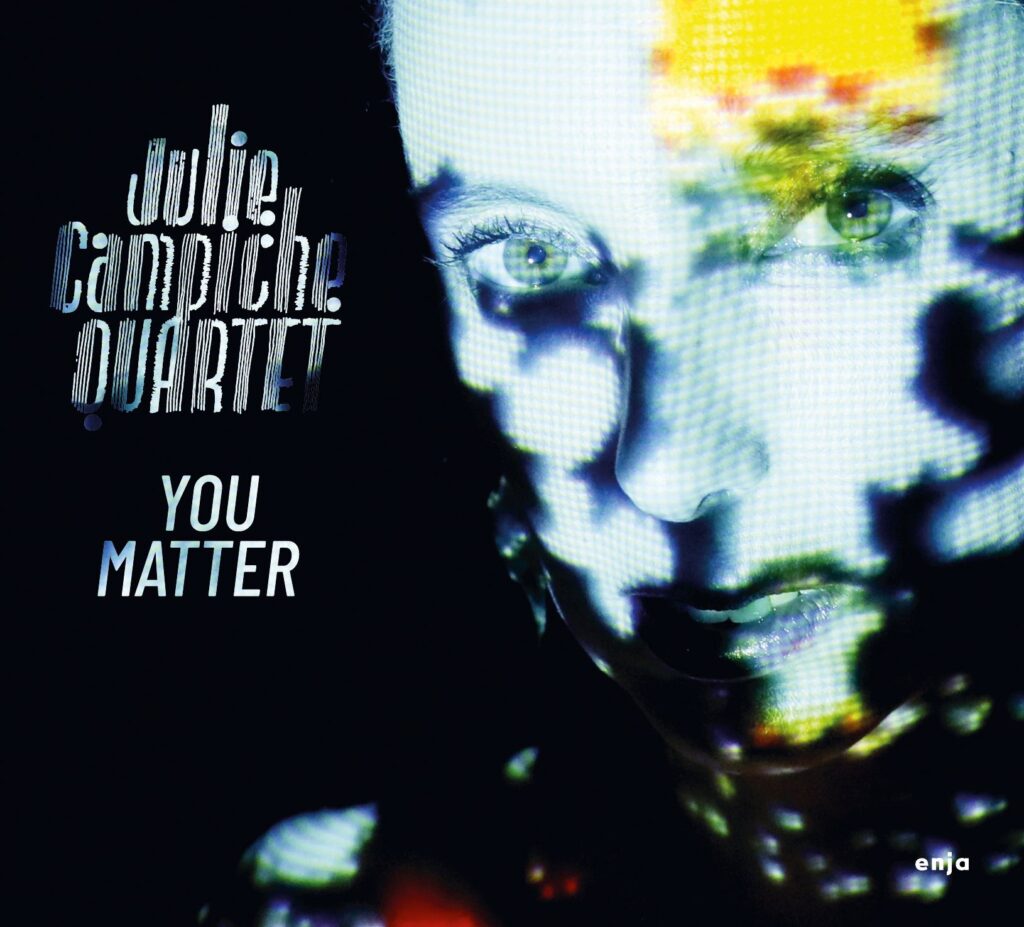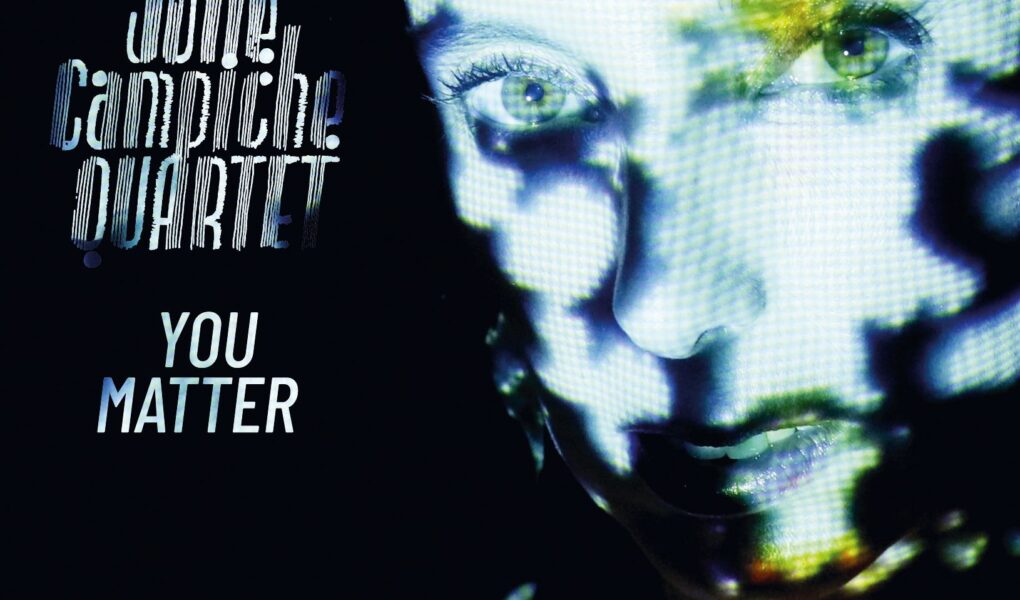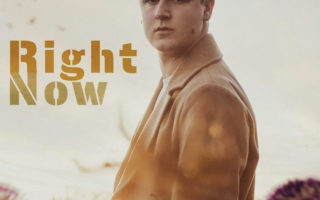
Harpist Julie Campiche is a truly innovative artist. A pioneer of the jazz harp, she has created her style through the exploration of improvisation, classical and electronic musicand her sound plumbs the depths of classical and jazz techniques.
Campiche has performed in clubs and at festivals across Europe. She is curious and always seeking new musical experiences. Collaborators have included Malcolm Braff, Jasper Hoiby, Andreas Schaerer, and Anders Jormin, to name just a few.
With her band Orioxy, Julie toured Europe from 2008 to 2016 and released three albums that received positive reviews in the international press.
After Orioxy, Campiche formed the Julie Campiche Quartet comprising Julie and three outstanding Swiss musicians. The quartet has toured more than 115 countries. They use advanced orchestral arrangements, expressive instrumentation, and complex musical and harmonic structures. In 2020, the quartet released the album ‘Onkalo’, inspired by a Finnish underground reservoir used to dump radioactive waste, which gave an insight into Campiche’s desire to connect her music to broader societal issues. The quartet was selected to represent Switzerland at the 12 Points Festival in Dublin and nominated for the Montreux Jazz New Talent Award.
Campiche also provides workshops and teaches at Elise Estavoyer’s harp school.
In September 2020, she received the Leenaards Foundation cultural grant, which allowed her to train for 18 months with composers who inspired her. In January 2020, she was one of three composers of the Bodycity Project, a multidisciplinary show in Lausanne as part of the Youth Olympic Games. Campiche is a multi-award-winning musician involved in many projects, and this album reflects her didactic and multidisciplinary background. Of music, Campiche says, “For me, being a musician is something sacred, essential, and universal. I try to work on forgetting myself and create a space where I believe I can fly and share this space and connect. It is truly what I love. “
|
‘You Matter’ is an avante-garde work packed with innovation, exploration, twists, and turns. The power here is that of not one but four musicians whose interconnectivity has a profound impact on the music. Many numbers reflect compelling, hopeful messages built around societal issues, including climate change, the refugee crisis, patriarchy, and human identity. As Campiche puts it, the message is “to reconnect with ourselves; with the feeling that we can impact our world; that our actions are important and meaningful. What I’m trying to do as an artist is to create a link between the big and the small, the intimate and the societal. We all matter, ‘You Matter,’ so don’t give up. We can all make a difference”. ‘You Matter’ was created over a year when the population was emerging from a pandemic,which all but shut down creative outlets for live music. Julie explains, “I received an invitation from a festival to make a new creation, and decided to première a new repertoire with the quartet….After the first show, we played a few concerts. It was important for me that we could play it live a few times before recording. It’s like new shoes. You need time to have the perfect fit. Then we went into the studio and worked with Matthieu Michel as ourmusical advisor. He had fresh ears and guided us in the recording process so we could give our best.” |
|
|
‘You Matter’ opens with ‘Aquarius’ a piece inspired by the story of the SOS Mediterrannée boat called Aquarius that rescued 30,000 migrants in the Mediterranean Sea before being detained in 2018 for political and judicial reasons and being replaced in July 2019 by a new ship, the ‘Ocean Viking’.
Based on the theme of migration, there is a sense of fear and the unknown throughout the track. The deep, dark opening tones give way, slowly but surely, to a sense of rhythm and order, yet the feeling of fear imbued by the percussive strings of the bass is ever-present. Julie says, “fear can be found on many levels: the fear of people lost in the Mediterranean on boats of fortune, of course, but also the fear of Europeans towards migrants and the political and human consequences that this generates.”
The music reflects that concept of fear – with eclectic rhythms, only settling into a pattern temporarily for short phrases. There is a sense of never relaxing, constantlychecking and being checked with delicate spacings and stops and starts. The sax of Leo Funagalli wrenches the heart with its mournful, searing sound deluges, backed by interweaving percussive rhythms from the drums and bass, the sax left on its own at the halfway mark to scream solo into the ensuing silence. A beautiful quietude follows this, the calm before the storm perhaps? One can envisage a moment or two of peace and calm, a discovery of serenity, and finally, a cessation of chaos. Then the harp comes to the fore in turns simple and comforting, then tricky and complex in its line format. The piece gradually builds again and evolves into a multi-layered beast, ending with the sax screaming again into silence.
‘The Other’s Share’ is inspired by the relationship with ‘The Other’ in constructing the self. Campiche asks, “In what I am today, what part of my person and personality comes from me and what part comes from my environment, from my relationship with ‘The other’? And extrapolating the phenomenon further, how do I manage the needs and desires of the different parts of myself? The complexity and ambiguity of these encounters fascinate me.”
The music reflects the multi-faceted parts of a personality. The opening features sharp changes, angularity, a sense of awareness, and tension. Then conflict with clashing rhythms and interlinking yet contrasting patterns that veer toward and away from each other. Next comes calm and understanding. Any disparity is resolved as the harmonies are explored and revealed as if peeling delicate layers of tissue paper to reveal the surprise beneath. The track develops, and vocals subtly interweave between the beautiful harp lines and the supportive ensemble.
‘Fridays Of Hope’ is a tribute to the Friday For Future movement initiated by Greta Thunberg. Campiche feels this global movement organised by young people who unite across borders to speak with one voice is a huge source of inspiration and hope. Thunberg’s’ voice tells us to “Wake up and change.We already have the facts and solutions; we need to wake up and change”. Underneath, the instruments create a menacing background that resolves into an energy, a force that lifts, whirls, and develops into a mellifluous line that the sax takes and drifts with as the bass and drums support. Thunberg is then heard demanding “I want you to act” over a delirious, raging drum solo from Clemens Kuratle before the track ends with a powerful melody.
‘Parentheses’ was inspired by how Campiche feels about the ‘little’ things she leaves in brackets. Sometimes they are unimportant things, but often they are ‘little’ things that are essential and fundamental. The track reflects the inside and outside parenthesis idea – two melodies echo and mirror each other, creating different paths for the ears to follow and the mind to consider. It is as if each is trying to be heard but overpowered by the other – those parentheses forming boundaries unseen yet always there. The melodies come close but never interweave, which is clever and creates the perfect reflection of the theme. The slow, strolling gait of the number encourages thinking and a sense of inner peace – regardless of the ‘little things’ awaiting, forgotten momentarily in the parenthesis.
‘Lies’ is a beautiful track with sinuous melodies which, like lies, work their way through the piece, like presences not quite heard in full, yet there nonetheless: the dexterous and intricate harp and the bass line’s lyricism counter Fumagalli’s acrobatic playing. The listener is asked to follow one line; then another imposes itself in a clever and creatively woven changing of melodies, textures, and melodic lines. Gorgeous.
‘The Underestimated Power’ is inspired by the strength of women. Campiche says, “All the women who make the world go round behind the scenes of everyday life, in any situation and throughout human history. All the women who silently sacrifice their needs, consciously or unconsciously, by choice or necessity, for the ‘common good’ often of their own families.” It is they who inspired this piece, and the ensemble captures many essences of woman, from a delicacy and fragility in one section to a fiery, strong, emotive strength in another; from sadness to light and laughter, there is beauty here in the dialogue between the musicians and between them and the listener. The harp dictates the mood changes, the swings, tempo, essence, sexiness, laughter, and sassiness – allvoiced superbly by the sax, harp, and double bass with deep, arco lines. The final section is powerful and infused with strength; something women are good at conveying. This is a wonderful track.
‘Utopia’ starts like a wholesome number, gentle harp overlaid with a melody and underpinned by soft drums and strings. But before we settle into folksy loveliness, the track develops, evolves, and takes off, becoming an energy-filled number as sounds ricochet off each other, ideas are exchanged and explored, and the dialogue between the musicians develops. The bass solos, singing its plucked string song before the rest of the ensemble, accompany the harp and expand the number along even greater explorative roads. The sax is superb, Fumagalli flying through the registers, and the track swingsone moment, then is free and glorious the next. Another standout track.
Hearing this music made me curious, so I asked Julie what her harp meant to her. She told me, “For me, the harp is an instrument. As with any other instrument, it isn’t the goal, but an instrument that we use to play music, so the goal is the music. For me, the harp can be used in any kind of music. In some contexts, you will have some technical specifications to consider, but nothing is unsolvable.
And, of course, if you want to play extremely chromatic music like bebop, it can be very hard. But again, if you work on it, you can go quite far, I think. It won’t sound like a piano or a guitar, it will be different.
I think the most special thing about the harp that can make it hard to play in jazz or pop, or any groovy music, is the fact that the instrument has really a lot of resonance. So, it makesit hard to groove. But, again, you can always find a way. It just takes longer than for some other instruments that are more ‘made for it.’
On the musicians she collaborates with here, Julie says, “I worked with the musicians from the very beginning of the band. I wanted to play with the three of them because I really like the way they position themselves within a musical framework. It’s not about individual performance, the music is always their priority.
I met the three musicians separately, and they met for the first time in this quartet. It worked very well from the 1st rehearsal.”
What is striking about the music on ‘You Matter’ is the interaction between the musicians. The harp fits perfectly into the jazz, folk, and avante-garde pockets and creatively blends all three, adding a dose of classical just for good measure. An astounding album with so many different praiseworthy things. A work of art and no mistake.
Julie Campiche harp, fx, composition
Leo Fumagalli saxophone, fx
Manu Hagmann double-bass, fx
Clemens Kuratle drums,fx




